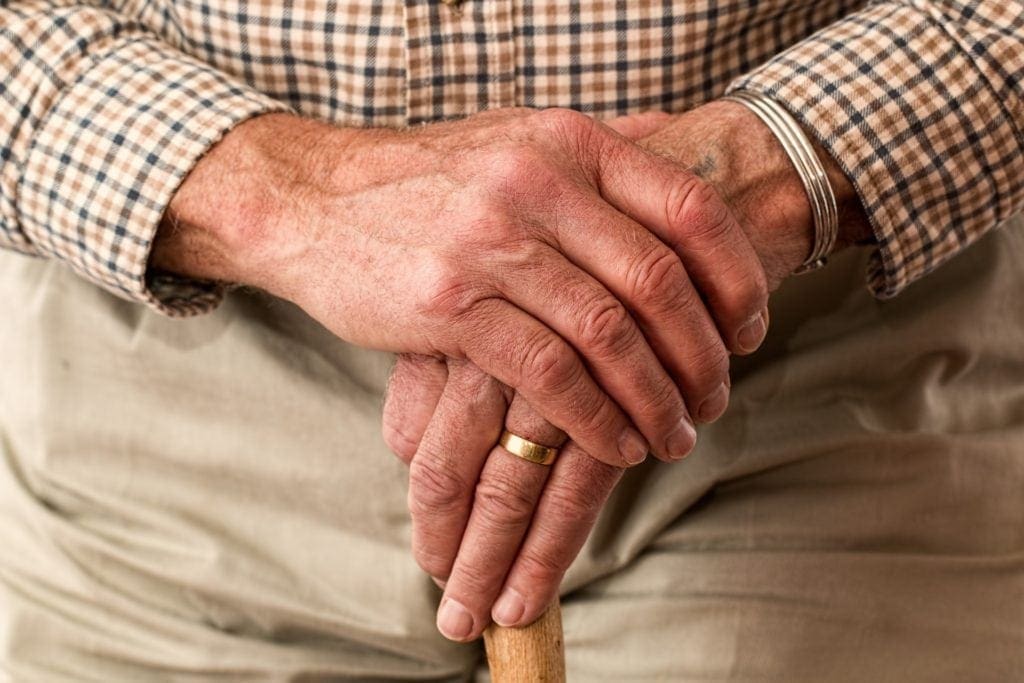Moving for Seniors
 84 million senior citizens are expected to be living in the U.S. by 2050. As these seniors age, the oft-taken next step for them is to downsize from their original home to a smaller home or assisted living situation. These moves are frequently, if not always complicated by emotions, cost, and resources.
84 million senior citizens are expected to be living in the U.S. by 2050. As these seniors age, the oft-taken next step for them is to downsize from their original home to a smaller home or assisted living situation. These moves are frequently, if not always complicated by emotions, cost, and resources.
Parting with Possessions
Dictionary.com gives the definition of “Moving” as: “involved in changing the location of possessions, a residence, office, etc.: moving expenses.”
But it also lists another definition: “stirring or evoking strong feelings or emotions, especially touchingly or pathetically: a moving story.”
This is very true for seniors. The older people get, the harder it is to part with items collected over a lifetime. Each piece is a memory. A memory of where they’ve traveled, the people they’ve loved, the work they’ve done, and the trials they’ve faced in their life. As seniors age, these memories are more important than ever because many times the person or people associated with the items have died or moved away. So, the treasured possession is all they have left to remember them by.
If a move is imminent, there are steps you can take to help the process go better for all the parties involved.
Downsizing
The Washingtonian’s Ann Cochran recently wrote an article on how to downsize an aging parent’s home that shared her experience moving her elderly father out of his apartment and into a group home. In it, she recommends the following tips for downsizing an elderly parent’s home.
- Institute deadlines for achieving tasks related to the move-out process. Put them on the calendar and have everyone agree.
- Whenever possible, respect the wishes of your loved one regarding the items to be kept or tossed. Just like you, they may have an attachment to something that others can’t understand.
- If there are a collection of similar items, choose one to bring to the new residence as a representative piece instead of the whole collection.
- Underscore the benefits of donating objects that can’t make the move.
- Keep the best stuff. If your parent has fine china or silverware, bring it. Leave the day-to-day behind. After all, they should be able to enjoy these items in their last years.
- Keep only a handful of meaningful framed photos and albums. Then scan the rest onto a computer or backup drive for archiving.
- Anything truly valuable and sentimental such as jewelry and valuables you should pack yourself.
- Given that space will be smaller, consider storing off-season clothing in self-storage. These can be retrieved as necessary.
 Professional Help
Professional Help
There are now professionals who now specialize in assisting the elderly with all aspects of downsizing. The goal of these providers is to manage the transition trauma and stress that can arise during this process. The National Association of Senior Move Managers (NASSM) is an organization whose members have professional backgrounds in gerontology, social work, health care, nursing and psychology. They specialize in helping older adults and their families with the daunting process of downsizing and moving to a new residence. They typically charge between $40 and $120 per hour for their services, but it’s worth it, especially if family members live out of state or are too busy to help in a meaningful way.
These professionals can do everything surrounding a move, including locating and sorting personal belongings, arranging moving companies, coordinating change of address with the post office and utilities, packing and unpacking items, managing estate sales or auctions, staging possessions in the new home, arranging for repairs to be done at the original home, and even interviewing realtors for the sale of the property. Senior moving managers may also have great advice in terms of recommending good retirement communities in the area.
Ann Cochran was quick to point out that while senior moving managers are great at logistics and planning, it helps if there are loved ones around to help with going through memorabilia. This is especially true in instances where the parent has dementia or Alzheimer’s disease.
Assisted Living
If you plan on helping your parent or grandparent move into an assisted living facility, Independence Village provides a few tips on making that process go smoothly.
First, check with the facility to see what items can and cannot be brought into the facility. Often, they’ll have rules about what types of furniture you can bring in.
Also, make sure to label items with the owner’s name. In a community-living situation, it’s possible for belongings to become intermixed and ownership confused. This is also the case for clothing, as it can be mixed up in the laundry.
What to Do with Valuables
If you have many items of value, these can be sold through auction houses or via an estate sale. As for choosing an estate company, EstateSalesGuide.com suggests getting referrals from others who have had estate sales. When searching online, make sure to look at their reviews on several sites including Yelp and Google. Look for a pattern of service rather than keying in on one good or bad review. Once you’ve narrowed it down to one or two, give them a call and ask them a series of questions such as how long they’ve been in business, what their fees and commission structure are, whether they are insured, and if they have references.
If you are going the auction route, make sure you have documentation of authenticity for original works. These will be important to establish provenance and get the most return on the sale.
Ease their Worry
In a Genworth Financial study, it reported that 55% of seniors surveyed stated that their greatest fear was being a burden on their family. In fact, they reported being five times more worried about being a burden than dying.
Whether you hire a professional or help your loved one move yourself, good planning and organization can help you avoid much of the emotional pain and confusion that can accompany a senior move.

About the Author: Derek Hines
Digital Marketing Specialist
Derek is originally from the great state of Wisconsin (go Badgers), but is slowly becoming a Pacific Northwesterner. As part of the Digital Marketing team, he writes extensively on storage, moving and life for West Coast Self-Storage, based in Everett, Washington.
